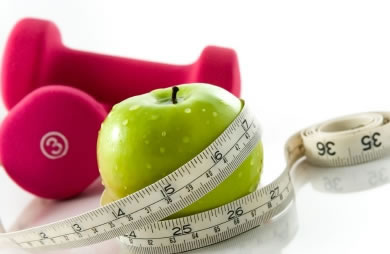 When I became pregnant with my first child, I decided that as long as my doctor said it was okay (and I felt good), I would continue running for as long as my body would allow. Little did I know how my running routine would change or how it would affect my pregnancy, labor, and delivery.
When I became pregnant with my first child, I decided that as long as my doctor said it was okay (and I felt good), I would continue running for as long as my body would allow. Little did I know how my running routine would change or how it would affect my pregnancy, labor, and delivery.
I'd been a runner for years and loved both the physical and mental benefits. So I was relieved that when I went in for my first OB appointment, the doctor said I could continue running as long as I felt good and didn't push myself too much. Running helped alleviate the constant morning (and afternoon and evening) nausea I couldn't seem to shake, kept my weight gain at a healthy rate, and prepared my body for the toughest race I'd ever have to run-labor and delivery. As my belly expanded, I went from a comfortable jog, to a slower jog, and finally to a waddle the week before my daughter was born. I was quite a sight to the neighbors I passed on my running route! But I wouldn't trade that for anything. For anyone whose health care provider has given their okay to continue running, I highly recommend it. The American College of Obstetrics and Gynecology (ACOG) says that if you were a runner before pregnancy, then often you can continue running during pregnancy. But ACOG suggests that pregnant women talk to their doctors first and modify their routines. If you're new to running, you might want to hold off until after the baby arrives since it's a physically stressful activity that your body and joints might not be ready for. As a pregnant runner, there are certain things to consider before you lace up your shoes and head out the door. Each stage of your pregnancy will bring different experiences and challenges you'll need to be aware of, so here are some things to consider. Early Pregnancy Nausea and fatigue are very common during early pregnancy. Although going out for a run might be the last thing you feel like doing, exercise can actually make you feel better. Make sure you aren't pushing yourself too hard, because sometimes rest is more important for you and baby. But many times, if you can get yourself out the door for even a short run, you'll feel better and have more energy for the rest of the day. The fresh air from an outdoor run can also help relieve nausea. Depending on how much you were running before becoming pregnant, you might need to cut back on your mileage a bit and pay very close attention to how you're feeling. This is also the time to stop anaerobic workouts (such as sprints). Your body is already working harder to provide enough oxygen for you and baby, and anaerobic workouts can force you to use oxygen that should be going to your baby. I experienced a lot of nausea during the first half of my pregnancy. But I did find that running helped me feel better (at least temporarily) and boosted my energy to get through the day. Even though my belly was not very large early on, I was surprised how quickly my pace slowed down and how much harder a six-mile run felt compared with just a few months prior. Later Pregnancy As your belly grows, your center of gravity also changes, leaving you more vulnerable to slips and falls. Be careful. Now is not the time to try out that new dirt or gravel trail through the woods, unless you're very sure of your footing. As your pregnancy progresses, your pace is likely to slow down considerably. As the baby grows, your diaphragm has less room to move, which leads to shortness of breath. That can be mentally tough for athletes who are used to pushing themselves to run further and faster. But just keep in mind that whether you can run a 15-minute mile or 10-minute mile, the fact that you're continuing to exercise has positive benefits for you and your baby! The more your belly grows, the more likely you are to experience things like back pain, swelling of the feet and ankles, and pressure on your bladder. One thing that can help, especially during exercise, is a maternity support belt. If you start feeling Braxton Hicks contractions, stop and walk. Once the contractions stop, you can usually start running again-slowly. Always stop running if you experience pain, fluid leakage, contractions that won't stop, dizziness, or the feeling that something just isn't right. These are all things you should discuss with your health care provider right away. I had very little swelling in the later stages of my pregnancy, and I think running was a big reason for that. The one problem I did develop was my baby putting a considerable amount of pressure on my pelvic area as she grew. The worst pressure happened when running downhill, which is why you should walk down hills (instead of running) after about seven months. I also had to use the restroom frequently, which meant I had to stay close to home! General Pregnancy Running Tips Although many of these are tips you should keep in mind all the time, they're especially important when you're pregnant.
|
Running During Pregnancy
A Guide for the Pregnant Runner
Page 1 of 1






Member Comments